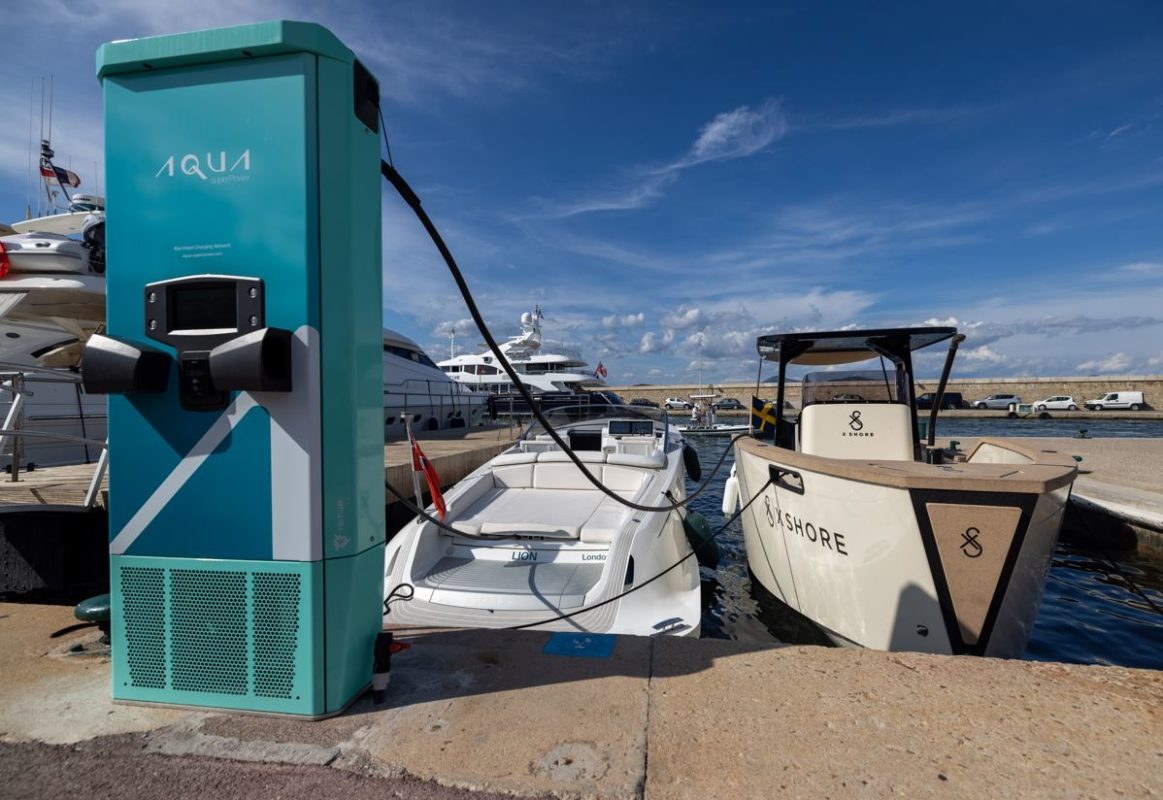
- Categories:
- Project Update
- /
- News
- /
- Announcement
UK Consortium Wins UK Government Funding to Support the Development of Bi-Directional Boat Charging
Cenex is part of a consortium which has secured UK government funding to explore the development of a UK demonstrator of bi-directional boat charging.
The Virtual Bunkering for Electric Vessels (VBEV) project brings together two leading UK businesses, with electric boat charging operator Aqua superPower and pioneering British bi-directional charging and smart energy technology company, Indra, as well as independent, low emission transport experts Cenex and the University of Plymouth.
The consortium will carry out a feasibility study to determine the financial, technical, and operational business case for the deployment of bi-directional charging infrastructure in the marine sector.
The study will also evaluate the environmental benefit, ultimately preparing the ground for a UK demonstrator of bi-directional boat charging.
Matt Knight, Hardware Trials & Data Integration Lead at Cenex, said: “Cenex has researched the benefits and applications of bi-directional charging in the automotive industry for the last six years and we’re excited to see the technology applied to electric boats in coastal regions where it could have a real environmental and economic impact.”
The VBEV project will focus on emergent bi-directional charging technology that has been developed, demonstrated and is in early release for road vehicles based on Indra’s experience of pioneering V2G (Vehicle-to-Grid) and V2X (Vehicle-to-everything) product development.
This game-changing technology has already demonstrated that it can effectively enable electric vehicle drivers to reduce their energy costs, cut carbon and improve battery conditioning by accessing greater levels of renewable technology at off-peak periods and discharge energy when needed.
The core benefit of the bi-directional charging capability is its ability to access and store greener energy for later use.
Indra’s innovative technology forms the foundation for the project’s marine application, adding the marine requirements for near-shore and inland marine vessels, using Aqua’s knowledge as an electric charge point operator (CPO) in the marine sector.
Cenex will develop the bi-directional charger value case and identify vessel architypes most suited to the innovative technology.
The diverse consortium partnership will develop a technical approach to this project by combining their technical, business, operational and environmental expertise.
Virtual bunkering enables the aggregation of electric boat batteries to provide energy storage and grid support services when not being used for propulsion. With the transition to electrically powered vessels there will be a requirement for deploying charging infrastructure across marinas and harbours.
This project will develop solutions to enable existing electric boats to support the charging infrastructure without the need for expensive grid upgrades by providing a virtual electricity bunker service, delivering managed battery conditioning support and enabling additional revenue generation for boat owners.
Alex Bamberg, CEO of Aqua superpower, said: “We are proud to have been successful in winning our second Clean Maritime Demonstration Competition project, which is evidence of Aqua superPower’s marine charging expertise and industry authority.
“As project lead, we look forward to working with our highly experienced consortium partners towards decarbonising the marine sector and to accelerate the transition to clean alternative propulsion systems.”
Mike Schooling, Founder and CTO at Indra, says: “This is a fantastic opportunity for us to demonstrate the exciting potential that bidirectional charging could bring to the marine sector, essentially turning ships into mobile battery storage units to help save money, carbon and the planet.”
Sarah Fear, Project and Knowledge Exchange Manager at the University of Plymouth, said: “This project builds on our existing collaborative work to reduce the maritime industry’s impact on the environment. It enables us to advance our research into cutting edge innovation that can support the shift to clean maritime, and reaffirms Plymouth’s place at the heart of this exciting and emerging sector.”
The VBEV project is part of the Clean Maritime Demonstration Competition Round 2 (CMDC2) which was launched in May 2022, funded by the Department for Transport, and delivered in partnership with Innovate UK. Aqua Superpower will be responsible for the overall management of the project and developing a commercial business case for the deployment of bi-directional charging and designing a demonstration plan for the technology.
The four partners will engage with electric boat builders, marina operators, the local and national grid as well as representatives of boat users to develop a detailed business case and plan for a world first demonstrator of Virtual Bunkering for Electric Vessels using bi-directional chargers.
Delivery of these innovative actions will be a significant step toward helping the marine sector to realise greater benefit from the transition to alternative propulsion vessels, maximising C02 savings, reducing costs and improving operation.
Cenex has previously worked with Indra on the Sciurus V2G project, and also conducted a chargepoint infrastructure study for electric vessels in Plymouth.